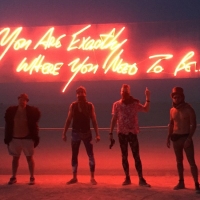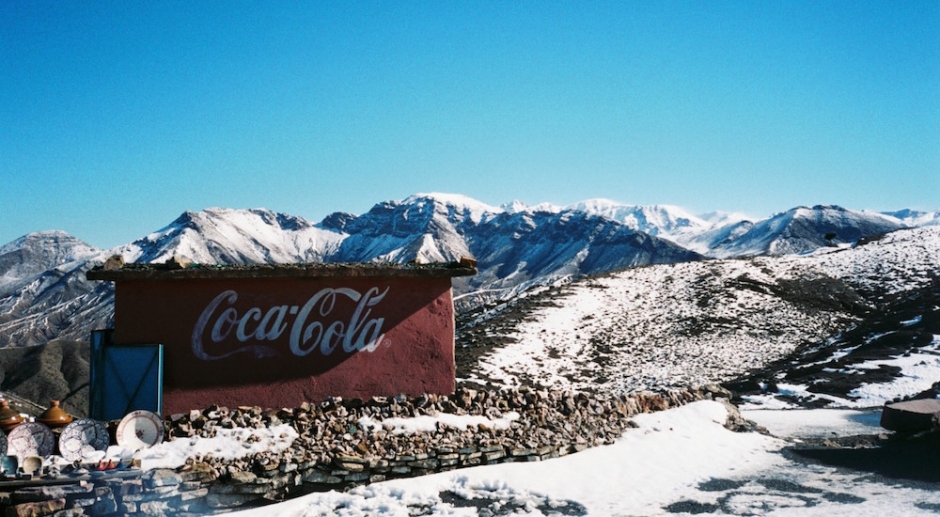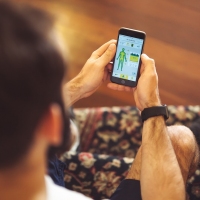 Haikus & Happiness At Burning ManA week's worth of lifetime-lasting memories.
Haikus & Happiness At Burning ManA week's worth of lifetime-lasting memories.

Symptoms Of The Bug
If only our lives followed the designs of our nine-year-old selves.
WHEN I WAS a kid, my room smelled different to the rest of the house. Dad had been a National Geographic subscriber for years, and my wardrobe, charged with the safekeeping of hundreds of the things, was full to its brim. They towered in swaying stacks — yellow slices of gold, climbing higher than I could reach. Most days after school I’d pluck one at random, pulling it out by its spine, and curving my own into the angle where the wall and floor met. The pages were glossy, easy to thumb, and though the words were mostly lost, the photographs got me. They were infinite in depth, inviting. I’d close my eyes and pin drop right into them, imagining myself there, in King Tut’s tomb, dusting treasures of incalculable value, or clambering up a stony ridge, leading a line of alpaca, racing to make Machu Picchu by first light.
I lived for the idea of blank spaces on maps — of tribes undiscovered, untouched and untarnished by a western world which, although I didn’t fully understand why, as a kid, I knew was somehow less pure than the world of National Geographic.
‘When I grow up,’ I told myself, ‘I’ll be leading those exhibitions.’
If only our lives followed the designs of our nine-year-old selves.
10 years later, and a string of sensible choices (soul compromises, I think they’re called) had landed me in law school. But I still longed for that glossed idea of adventure that I’d fallen for as a boy. At some point, I flinched. I put my studies on hold and went travelling.
And it went like you’d imagine. I became accustomed to hostels — to the well-meaning (if subtextually boastful) dissemination of tips and information from fellow travellers. I spent a lot of time in airports, and found them wonderfully existential. They are the same all over the world, I learned — completely homogenous. Like portals, they remove the notion of the in-between. You go to this big, white warehouse in Munich, get on your plane, throw a couple pills down your throat, slam a Heineken, donate your unused currency to some smiling child on an envelope who, given the right opportunities, could be just as happy as you are, and you wake up 14 hours later, in the same big, white warehouse, only this time in Hong Kong.
Do it again and you’re in Johannesburg, or Buenos Aires, or Oslo.
I learned quite quickly that I, too, was like an airport. I was just like most people I met — my fellow travellers — in that we shared a delusion. We all wanted something unique — an individuality of experience — but aren’t such qualities only preserved at the exclusion of others? Were we only travelling so that we could lord over our friends the fact that we knew something they didn’t?
A trope of every travel story is the attestation that ‘this one is different’. The narrator always finds a place not in the guidebooks, meets a local who shows them how things really are, stumbles across a sighting that is validated by its rarity. This was what we were after. But, too often, it seemed that these experiences only drew their value once flaunted. Do they not count till they’re on Instagram?
Cultural experience is not three white guys in turbans taking selfies in front of a holy temple.
So I came home, my world not having been expanded, but shrunk. The world is becoming totally accessible, yet completely unknowable. Fungible models replicate themselves across the globe — the omnipresence of Starbucks in cities (or the Starbucks metaphor in writing) attests to this. Streets are beginning to look the same, wherever you go. Branding is no longer out of place in a jungle, or on a mountainside. There is Wi-Fi everywhere. There are clean sheets. There is cable TV. There is beer.
And yet, something is lost.
If we travel to see new things, other ways of living, then the last thing we should want is to be catered for. Authenticity dissolves when our presence has been anticipated, and a souvenir stall set up.
In the 30s, Hemingway wrote of Kilimanjaro as a wild frontier where life and death depended on subtle, sure judgments. My grandfather was stationed in Tanzania during World War I, beating Papa to the party by two decades. The photographs he took show another world. Nowadays, if you want to climb Kilimanjaro, the most common path to the top is the Coca Cola route. Kim Kardashian writes for TIME, and Rupert Murdoch owns National Geographic.
Perhaps I was born a century too late.
 Haikus & Happiness At Burning ManA week's worth of lifetime-lasting memories.
Haikus & Happiness At Burning ManA week's worth of lifetime-lasting memories.
 Dropping the Darts: Alex's StoryThe founder of Pilerats talks about how one cigarette became a five-year long addiction, and how he broke the habit.
Dropping the Darts: Alex's StoryThe founder of Pilerats talks about how one cigarette became a five-year long addiction, and how he broke the habit.